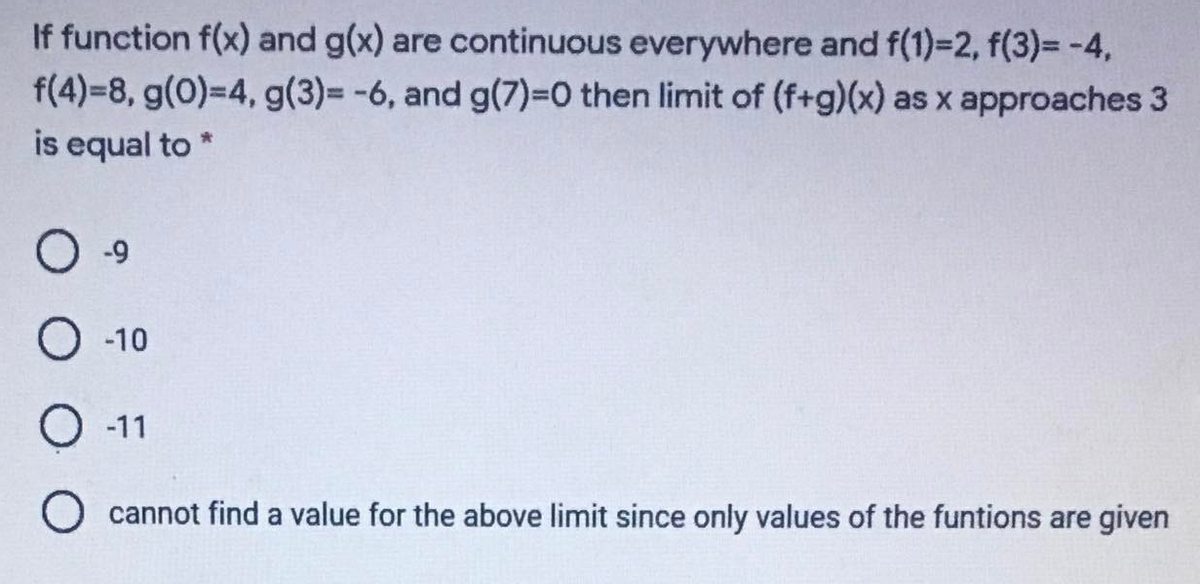If function f(x) and g(x) are continuous everywhere and f(1)=2, f(3)= -4, f(4)=8, g(0)=4, g(3)= -6, and g(7)=0 then limit of (f+g)(x) as x approaches 3 is equal to * О 10 O 11 O cannot find a value for the above limit since only values of the funtions are given
If function f(x) and g(x) are continuous everywhere and f(1)=2, f(3)= -4, f(4)=8, g(0)=4, g(3)= -6, and g(7)=0 then limit of (f+g)(x) as x approaches 3 is equal to * О 10 O 11 O cannot find a value for the above limit since only values of the funtions are given
Algebra & Trigonometry with Analytic Geometry
13th Edition
ISBN:9781133382119
Author:Swokowski
Publisher:Swokowski
Chapter4: Polynomial And Rational Functions
Section: Chapter Questions
Problem 15T
Related questions
Question

Transcribed Image Text:If function f(x) and g(x) are continuous everywhere and f(1)=2, f(3)= -4,
f(4)=8, g(0)=4, g(3)= -6, and g(7)=0 then limit of (f+g)(x) as x approaches 3
is equal to
O -9
O -10
О 11
cannot find a value for the above limit since only values of the funtions are given
Expert Solution
This question has been solved!
Explore an expertly crafted, step-by-step solution for a thorough understanding of key concepts.
Step by step
Solved in 2 steps with 1 images

Recommended textbooks for you

Algebra & Trigonometry with Analytic Geometry
Algebra
ISBN:
9781133382119
Author:
Swokowski
Publisher:
Cengage


College Algebra (MindTap Course List)
Algebra
ISBN:
9781305652231
Author:
R. David Gustafson, Jeff Hughes
Publisher:
Cengage Learning

Algebra & Trigonometry with Analytic Geometry
Algebra
ISBN:
9781133382119
Author:
Swokowski
Publisher:
Cengage


College Algebra (MindTap Course List)
Algebra
ISBN:
9781305652231
Author:
R. David Gustafson, Jeff Hughes
Publisher:
Cengage Learning

Functions and Change: A Modeling Approach to Coll…
Algebra
ISBN:
9781337111348
Author:
Bruce Crauder, Benny Evans, Alan Noell
Publisher:
Cengage Learning